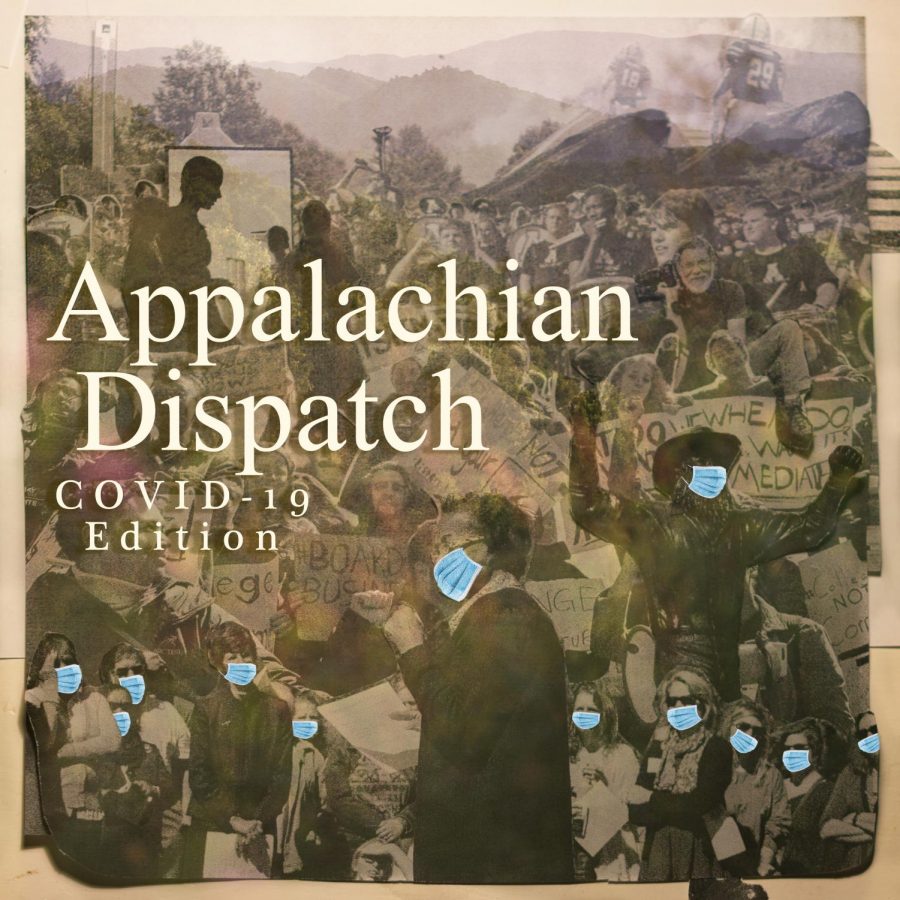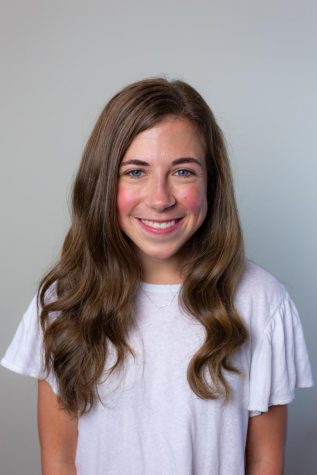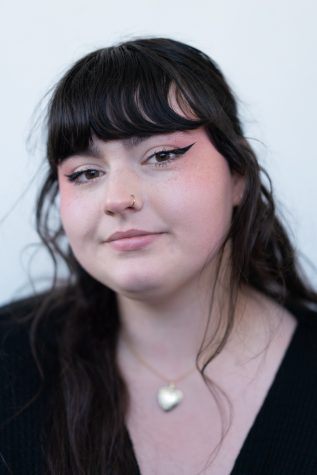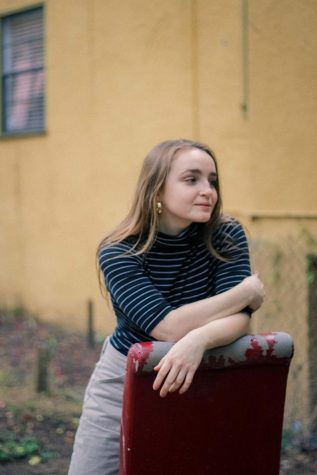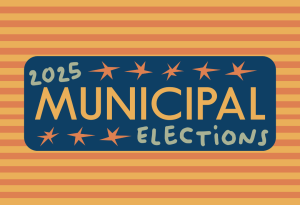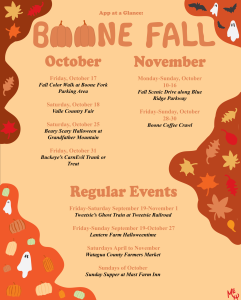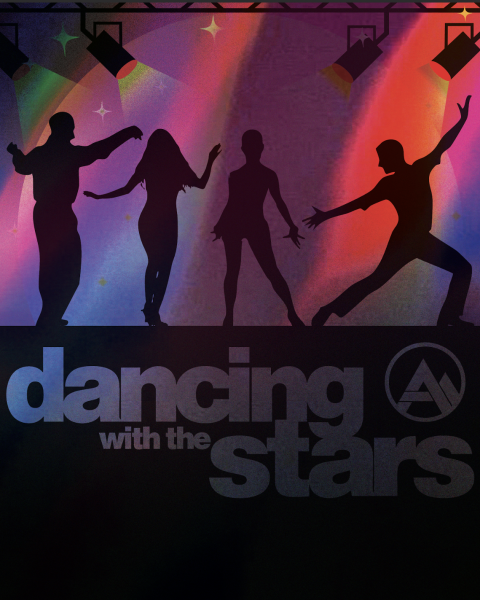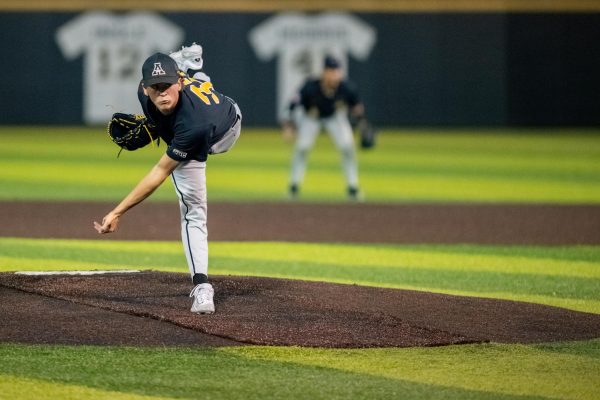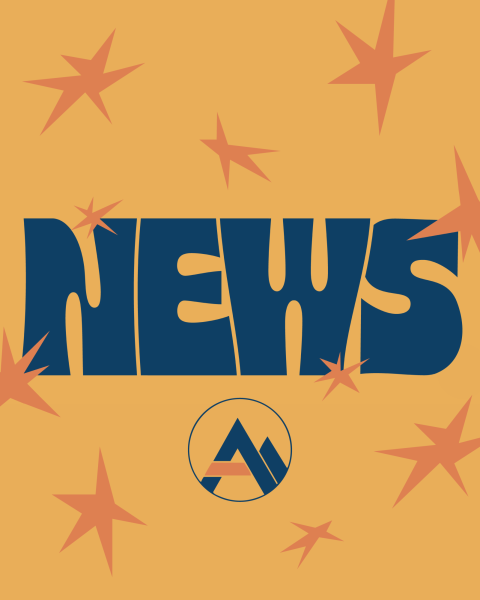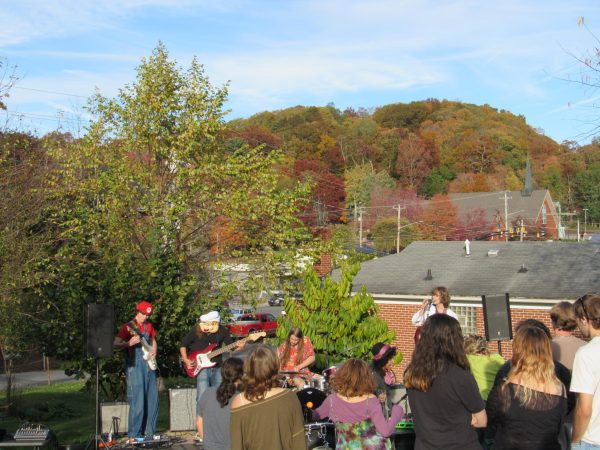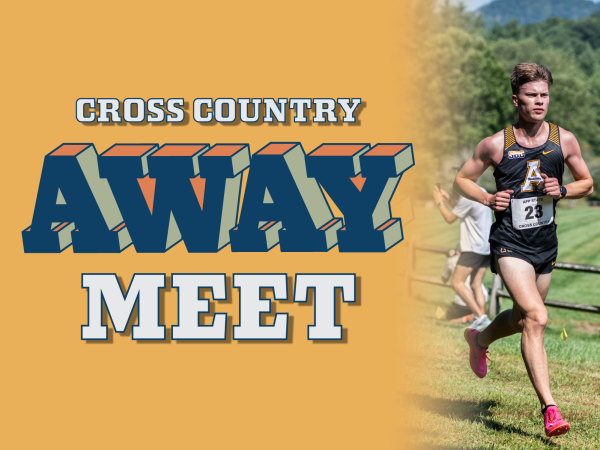Appalachian Dispatch: Student media and the year like no other
April 8, 2021
Voices can get lost in the peaks and valleys of the Blue Ridge Mountains. But, Appalachian Dispatch seeks out those voices to share experiences from App State, Boone and Western North Carolina. Appalachian Dispatch is a podcast from The Appalachian, App State’s student-run newspaper.
COVID-19 has changed the way everyone – from bankers to cashiers to CEOs – has done their jobs. Like these professionals, student media outlets have worked on the frontlines of the virus since it shuttered their campuses last spring. Online classes, elections, canceled extracurriculars and administrative decisions have altered their college experiences. In this episode, we will hear from three student media outlets at App State, The Appalachian, WASU and Appalachian Weekly News, about the changes the pandemic has made on their lives this year.
(FaceTime ringing tone)
Jackie: Hi, Mickey
Mickey: Hi, Jackie
(“June” by Bobby Richards)
Jackie: Hi, you’re listening to Appalachian Dispatch
Jackie: A podcast from The Appalachian, App State’s student-run newspaper
Mickey: Appalachian Dispatch explores voices on campus, in Boone and across Appalachia through your audio diaries.
Jackie: This season, the first season of Appalachian Dispatch, will focus on the ways COVID-19 has impacted the High Country.
Mickey: But, this isn’t just any COVI-19 podcast, it’s your podcast. Your voices. Your stories.
Jackie: I’m Jackie Park, Editor-in-Chief of The Appalachian
Mickey: And I’m Mickey Hutchings, Managing Editor of The Appalachian
Let’s get to it
Jake Markland:
(I miss not being able to sit in an actual classroom weirdly enough.)
Katie Garceran:
(I just miss kind of being able to walk into a place and now have to worry about where’s the closest hand sanitizer station.)
Ansley Puckett:
(You know, I really miss the movie theatre. You know, paying $15 for a ticket and then 50 bucks for a popcorn.)
Anna Muckenfuss:
(No rest for the weary.)
Mickey: This week on Appalachian Dispatch: media outlets everywhere have carried us through the last year with stories, education and information we so desperately needed during the pandemic
Jackie: College media outlets, too, have been on the frontlines of the virus, reporting on changes it has brought: online classes, virus spikes, lack of social events, and administrative decisions that are changing our college experiences.
Mickey: This week, we will hear from our student media outlets at App State: The Appalachian, WASU and AppTV.
Mickey: First, we’ll hear from the staff of The Appalachian student-run newspaper. Emily Broyles is the News Editor. For many student journalists, college media outlets can feel like their actual majors.
(Emily Broyles starts speaking)
(Hi, my name is Emily Broyles. I’m the news editor for The Appalachian. It’s currently 10:35 at night on a Sunday. Um, it’s March, let’s see, It’s March 28. Um, so right now I’m in the library with my roommate of like three years. We met in the dorms when we were freshmen. Um, and we’re just doing homework, and my version of homework is actually me prepping the manifest for our, uh, PDF version of the paper.
That’s kind of something that’s changed because of COVID-19. And I’m definitely not prioritizing my homework in this exact moment in time. Um, but, um, yeah, it’s just really weird how, I mean, I’ve always been super dedicated to clubs and organizations, but I feel like with The Appalachian it’s more of a duty and a service just as you know, journalism is. Um, and I think a lot of people don’t understand that, uh, including like my mom or like some friends of mine, they’re just like, ‘You need to do your, do your homework, get that, get that GPA going.’ But I choose to put The Appalachian first and I don’t want, I don’t think my adviser, or my other editors will come for me because I think we all think the same.
Um, and yeah, I also noticed that like, my mouth is super dry, um, drier than it usually would be in past years. I feel like, because I’m always finding myself like sending audio messages to like other editors or friends or people in my other organization. I’m an ambassador at the university. Um, it’s currently going through a lot of changes, so talking a lot with them, with those people. Um, and I just always find myself, yeah, just talking to and communication with people. So, I always have, like, water with me. Um, it’s a lot, it’s a lot. And I also find myself, like, my social skills have just like plummeted. Um, I think a lot of people will have kind of felt the same way. Um, in terms of just like, talking to people face to face and seeing people face to face that you haven’t seen in like a year, but you’re so used to seeing them on Zoom.)
Mickey: Since Emily is responsible for managing the news section of the paper, she’s been, of course, thinking a lot about current events.
(Emily starts speaking)
(To kind of lay out what is in front of me, I have my computer, my AirPods, my Hydroflask and my agenda that are both lavender. Um, and my AP Stylebook, because I needed to look up, uh, if Asian American had a hyphen in it, and it does not, but I remembered seeing the hyphen in the New York Times, but I have to remember: New York Times does not use AP style. And I had to use that because writing a story right now on just, uh, Asian Americans here at App State, uh, responding to the racist attacks against Asian Americans in Atlanta, on March 16 of this year. Um, the U.S. has seen two big acts of gun violence in the past couple of weeks, which is really sad and unfortunate.
It’s kind of sad and like icky to think that when, when I first heard this news, I was like, ‘Oh my gosh, you really are going back to normal’. And I don’t mean that in a positive way. I mean, like I wonder if COVID restrictions will lighten up, if we’ll see more gun violence. So yeah, I’ve been thinking about that. But getting back to that reference, those students are responding to those attacks on Asian Americans that have experienced racism since COVID, and even before. Lot’s of crazy stuff that I would never think would happen, has happened.)
Mickey: On top of her current position, she is also the incoming editor-in-chief of The Appalachian and as well as a university ambassador. Emily knows just how fleeting time can feel, especially when student leaders are facing so much pressure, and not just from classes.
(Emily starts speaking)
(Oh my gosh, I have a discussion post due at 11:59. Y’all, that just once again proves that burnout is real and time is not real.
I have an interview at 8:30, um, to help pick out the next ed board for the paper. I’m going to be the editor-in-chief next year, which is really exciting. Um, it’s really fun to kind of interview different people for these positions that I will be working with.)
Mickey: Caleb Garbuio is The Appalachian’s opinion editor. He said that the pandemic has disrupted the way the paper operates, but it’s not all that bad. Some parts of production feel less chaotic when it’s virtual, even though he’s losing out of the organization’s feeling of community.
(Caleb Garbuio starts speaking)
(Hello, my name is Caleb Garbuio. I’m the, I’m a senior, I’m the editorial page editor, or the opinion editor, as I go by at the production meetings.
The thing that’s been the most different for this year has got to be production. Uh, it used to be a really painful process where, you know, we’d come in every Wednesday night, all the editors, and we’d sit through until the paper looked presentable and, you know, time, we’d be leaving from 11 to like 1 a.m. in the morning. And while the total process sucked, it was always very rewarding the next day, when we got an amazing, uh, printed publication. Uh, but that, for obvious reasons, did not happen this year. So, we switched entirely to an online publication, which was definitely a different feel. And there wasn’t that sense of community.
Additionally, the meetings were a lot different. I personally preferred them because there was a lot more organization to them. It was less loud, less chaotic. However, there definitely was that part where, you know, you’re not seeing people face to face, which definitely gave for a different experience.)
Mickey: Next, we’ll hear from Ansley Puckett, The Appalachian’s arts and culture editor and incoming managing editor. Although her life has changed during COVID, she’s feeling optimistic and is looking forward to doing the things she misses the most.
(Ansley Puckett starts speaking)
(Hello, my name is Ansley Puckett and it is March 26. I am the arts and culture editor for The Appalachian, and next year I’ll be moving up to managing editor. I’m also a junior journalism major here at App State.
Uh, this year’s been interesting. As far as school and, you know, the paper goes, obviously, it’s a lot different from years previous. I’m really excited. Hopefully soon we’ll get back to normal. People are being vaccinated. It’s getting warmer. I feel very optimistic about the future.
The situation around COVID – obviously it’s been a really sad year, a lot of lives lost, but hopefully we are moving in a direction that’s better and, you know, more optimistic. I hope next year I can see more of everyone in person for the paper and for classes. It kind of seems like we’re going in that direction. I miss that. I also miss just like regular life things.
You know, I really miss the movie theater, you know, paying $15 for a ticket and then 50 bucks for popcorn. Um, not quite that much, but at this point, I’d spend it if I could just go to a movie theater and see a new movie in person with some, you know, really buttery popcorn. But yeah, I miss things like that. Hopefully movie theaters will still be around when we’re finished. It seems like a lot of people are missing them as well as missing, you know, like I said, face to face interactions.
Um, I don’t mind Zoom class necessarily, but you know what I mean? I stopped to stare at a screen all day and to recognize people, it makes it kind of hard with people’s masks on. I feel like if I did see someone I knew I wouldn’t necessarily recognize them immediately. So, that’s been interesting. Yeah, for the most part, just recovering from a long, cold, kind of sad winter. Hopefully things will get better here and we’ll have a nice spring and a productive summer and we can all heal a little bit from the experience that we’ve all just had.)
Jackie: Jake Markland is the associate news editor for The Appalachian. He says that those early days of quarantine in march 2020 were actually some of his best days of college.
(Jake Markland starts speaking)
(And I kind of sort of moved in with my girlfriend and all of her roommates were gone and we just lived together for March, April and May, and that was the best time – those three months right when it first had hit.
Um, it was scary of course, but, I didn’t have too much schoolwork, the student organization I’m a part of was pretty much on hold, so I didn’t have any obligations as president of that organization, so I spent so much time just sitting outside, reading, going on runs, watching a lot of movies, and that part was really awesome.)
Jackie: Jake says that over the summer and fall, he kind of got into the motion of things, and things were going OK. But, this spring has thrown him for a loop.
(Jake starts speaking)
(This spring has been absolutely insane. I don’t know if it’s just the burnout at this point, or I have more work from classes this semester or I’m just taking higher-level classes, whatever, whatever. But, I just feel like I work all day, every day, and my to-do list never shrinks.
Without a spring break this semester, it has been rough, I’m very appreciative of all of the App State professors because they’ve been very willing to work with us, I think most have. There’s been many times where I’ve had to email and say, ‘I missed this,’ or ‘can I please get an extension?’ or whatever it may be, which has been awesome because there’s been a lot of just time where I just can’t do it that day, and I’m glad they worked with you, or worked with us)
Jackie: Despite the stress, Jake says he wouldn’t have traded his time for the past year for anything.
(Jake starts speaking)
(My friend posed me this question where he said, this was in the middle of fall so it was in the heat of COVID, and he asked, ‘would you get rid of COVID right now, wipe it off the entire planet, but you have to lose all the memories that you’ve made during it?’ And it’s – there’s no way for me.
It’s been hard, it’s been stressful, I feel like I never stop working, I feel like I haven’t been able to separate work from personal life, I miss not being able to sit in an actual classroom, weirdly enough, all of that, but, I’ve enjoyed myself through a lot of uit. And I can’t wait to be done with it. But, the time I’ve spent, the amount of reading I got to do, the amount of time I got to spend with my partner, the amount that I’ve learned about myself, having so much time to self reflect, I wouldn’t trade it to get rid of COVID.)
Jackie: Now, we’ll turn to the sports desk.
(Elizabeth Hutto starts speaking)
(My name is Elizabeth Hutto, I am a junior and I am a student journalist with The Appalachian on the sports desk)
Jackie: Elizabeth actually transferred to App State during the pandemic. But, she says joining the paper has given her the sense of community that she was missing with all of us being separated)
(Elizabeth starts speaking)
(It was already kind of weird and culture shock because I came from a very small liberal arts college, about 2,500, 3,000 kids and I lacked a sense of community for a while coming here.
I had friends, I had a lot of friends from high school and from my hometown and church, but most of them have already graduated or they’re in their senior year, and when you transfer in as an upperclassman, I’m a junior, but I should be graduating this year if I were on track, but when you transfer in as an upperclassman it’s kind of hard to find a sense of community.
I didn’t really feel like rushing a sorority was an option for me because I’m 22 and all of the other girls really were 18, 19, maybe 20, so when I joined The Appalachian it was weird just everything being online and I still haven’t really met my co-writers and stuff, my other student journalists, but it helped me to gain a sense of community that I was really lacking because it’s just like, I’ve never really done a totally online, virtual culture before and then when I got a new job and started working in the restaurant industry with a lot of App State students, that kind of helped me to form a sense of identity.
But yeah, it’s definitely difficult, you know COVID’s tough for everyone, but to come into a place where it’s like, you thought you knew all of these people but most of these people have already established a presence in Boone and they’ll be gone anyways, it is a little bit weird, and so for The Appalachian to be doing what they do just to make sure that the newspaper still has that strong sense of community, it’s just been a welcome change that I was really craving within my first three months of being here until I joined the newspaper and before I got a job.)
Jackie: In a totally different part of the paper, in this year when we’re all separated, one thing has really kept us all together, and that’s social media. so we can hear a little bit about that from our marketing director.
(Meg Powell starts speaking)
(Megan Powell here, it is March 29, a Monday morning, around 8:42 a.m., I’m just sitting here on my couch working on school, reflecting on this year with the paper.
It’s definitely been interesting for me, I serve as the marketing director, my first year in this position, and I haven’t actually met a lot of my coworkers in person, which has been one of the weirdest, you know, changes in being a part of the school paper. But despite that sense of, I wouldn’t say discontinuity, we still have created a really great community with editorial board and even our individual desks and full staff.
A lot of it can be attributed to the infamous Zoom that we have spent so much of our time on. And yeah, we’ve just all had grace with each other, understood that this is a weird year and we’re going to need more time, we’re going to need more support and encouragement. And the staff of the paper, we’ve just really rallied behind each other in that aspect and held each other up and believed in each other. That’s really what I believe has helped us excel this year and have a really good year.)
Jackie: Sophia Lyons is The Appalachian’s chief copy editor. She says that Zoom might be great for connecting, but it’s also made her job harder.
(Sophia Lyons starts speaking)
(My name is Sophia Lyons and I’m the chief copy editor for university newspaper, The Appalachian and news director for university radio station 90.5 WASU FM.
I would say coronavirus influenced my job the most in terms of recruitment. It is really hard to get people to want to sign up for just another Zoom meeting every day, because it’s not like how it used to be, where you would go to the radio station and hang out or go to the newsroom and do something or, you know, go somewhere and meet people.
But now it’s just like, you know, OK, another hour on Zoom, how different is that from my day-to-day everything else, you know, do I really want to get on Zoom for two more hours at 7 p.m.?)
Jackie: Scott Spickard is the station manager for 90.5 WASU, the campus radio station. He says that this year has been really hard on their community at the radio station. Typically, the station has doors swinging left and right, DJs coming in and out, music coming out of its speakers and just a sense of comradery. But, this year, everything has changed.
(Scott Spickard starts speaking)
(My name is Scott Spickard and I am the station manager of 90.5 WASU FM, Appalachian State’s college radio station.
Just like so much around our world, our country, businesses, et cetera. Our college radio station has really been impacted as well from the pandemic, our station. We have fewer DJs on air in a day, in a week, and just overall over the course of a semester, which is really sad and really frustrating to many of our DJs who are wanting to get as much time on air as possible.
We, in terms of our staff are essentially doing most of our work remotely. We have access to our computers in the station so we are able to schedule music, schedule our PSAs and our underwriting announcements remotely. And so we really are lacking in the day-to-day conversations, the ‘come’s and go’s’ of people in the station and just the natural sense of community that WASU has had over the course of the years.
So an average day looks, can look similar based on, you know, if you have a DJ shift, but overall, the station looks really different as a whole, which is really challenging. And it’s been, um, difficult conducting staff meetings and station meetings remotely and on Zoom, and we just miss one another. We miss, yeah, working together in person and it’s, it’s really had a hit on me personally and how I feel like our station is functioning as a whole.
And I know it’s, it’s taken a hit on, on everyone who’s involved in the station, whether maybe a new DJ feels a little bit more isolated and lonely and may not have the help that one may usually get in a semester or a staff member may feel like they’re all on their own and doing their job. And so it’s taken an extra level of commitment to one another, a sense of initiative for me to check in on everyone and see how they’re doing and see how I can help with their work.
And so for me personally, I feel like my role has changed a lot. I am, instead of being present in the station a lot, I need to be present on my email a lot and present near my phone so I can answer calls and texts to where, you know, because I can’t help by simply just being in the station more. And so it’s been, um, been tiring looking at screens, tiring, um, having virtual meetings. And, yeah, just a kind of sense of, of isolation has been really hard.)
Jackie: Scott is also a senior at App State, so having so many of his ‘lasts’ during this year of COVID has been, of course, a weird experience
(Scott starts speaking)
(This whole year has been such a whirlwind for me as a senior, experiencing my last semesters of college in a really difficult environment, in a place that I’m not able to see many friends often where I’ve been really limited to hanging out with my roommates and my girlfriend. And so, I’m really thankful for those people who have been a sense of community for me when, when that has been hard to come by.
Overall, I’m feeling excited about the future, also nervous and hesitant, too, I know Boone, for many people, can become a comfortable place to be and you kind of get into your routine and your rhythm with your friends, and all of that is about to change just with the transition that is looming.
And so amidst the chaos, in this whole year and all that’s going on. And the looming transition for me, I am kind of hanging in there. I’m doing OK, leaning on my, my friends and family to provide a sense of normalcy and just a sense of, of being OK. And I think that’s what this year has been all about really.)
Mickey: Next, we’ll hear from members of The Appalachian Weekly News, a student-run broadcast. Anna Muckenfuss is the producer of the daily and weekly news programs. She says that the pandemic hasn’t altered her job very much.
(Anna Muckenfuss starts speaking)
(What does a day in my life look like? Really depends on the day of the week, really. No rest for the weary, I guess.
Um, no, this semester ever since we started doing, uh, the dailies in the studio, it’s kind of changed up what my week looks like. So, of course earlier in the day I have class, but on, on Mondays and Wednesdays in the evening, uh, we do have production for the dailies in the studio. So sometimes I will, I will be in the studio late at night. You know, if there’s technical issues, I can be there pretty much from 7:30 until closer to 11 sometimes. And you know, that’s not fun, especially on a weeknight when you’re tired and, you know, you’ve got other homework you want to do.
Fridays, of course, are really the busiest for me because the entire day really is, is spent on production. So, really from the moment I wake up on Fridays, I, my entire focus is the show. You know, really COVID, didn’t really affect us very much at the end of the day. I mean, last year, you know, when we were first sent home, you know, you were still able to put a newscast out, we just had to approach it in a different way.
You know, there’s, there’s nothing ever really keeping us from doing it. Uh, it, it just, you know, changed the pre-production process. Um, and you know, that’s something that, you know, we’ve, we really seen this year as well. So really not like, not a whole big difference. I mean, yeah, are, are we wearing masks in the studio? Yeah. Are we following some guidelines to make sure that people are being safe and no one’s coming in, especially if they’re sick, that, that does change things up a bit. But I, I don’t think it’s, it’s made a huge difference as far as my job as a student leader.)
Mickey: Ultimately, Anna says, the pandemic has taught her how to be resilient. she hopes to pass on that resiliency to the student media leaders who come after her.
(Anna starts speaking)
(Really this entire year for me, has just all been about rolling with the punches. It’s so much easier to roll with the punches because they hurt a lot less. And, you know, I, I hope that’s something that I can at least, that I have, passed on to the people who will be staying behind, or you know, who, who worked with me this year. If that can be my only legacy, I really hope it’s that because in this industry, you know, it’s, it’s really important for people to be flexible.)
Mickey: Katie Garceran is an anchor for the Appalachian Weekly News broadcast. She said the pandemic has made her day-to-day life as a student take a complete 180.
(Katie Garceran starts speaking)
(OK, so a typical day for me in COVID starts with me waking up early in the morning, I usually go to, most of my classes are in the mornings.
So, I go to all of those classes and I typically try and find some time to work out. I find that working out has been a staple to maintain during COVID for my mental health. It’s just a great release and it really helps kind of de-stress if you will.
And then I usually end up going to work at some point, I work at the front desk in the Holiday Inn. So, I usually do homework there and check people in for about seven or eight hours.
Then, I typically come home, make some food and try and get some more homework done before I go to sleep. If I really need some mental health time after work, I try and give myself, you know, just some hours to just relax, watch TV, do my thing. But I mean, COVID has changed my experience at school drastically.
Normally I would stay on campus for hours on end and do homework there and not even have a job, but because of COVID and because everything is online, I do have a job and I don’t find myself on campus anymore, which deeply saddens me because I love being on campus. I love being around other people. I love that environment. I love learning in an atmosphere outside of my home or my bedroom.
And I’ve just, I’ve learned a lot about myself as a personal learner and about just how I, how I, you know, interact with others and how I work best. And I find that I work best when I’m with those people face-to -face. And when I’m around them face-to-face and getting to interact with them and kind of build relationships that way.
I just miss kind of being able to walk into a place and not have to worry about where’s the closest hand sanitizer station. You know, who’s not wearing masks. What’s, you know, what, if someone here has COVID I, I, I miss not worrying about that. I miss just being able to walk into a classroom or the gym or a bar and feel comfortable and feel safe without anxiety.
Um, I guess the happiest change that quarantine has given me is kind of valuing my mental health more because prior to the pandemic, I was constantly go, go, go, go, go. And I never took breaks and I never kind of let myself be. And my mental health has really declined in the pandemic, but I think that that was a good thing at the same time, kind of a blessing in disguise because it taught me that I do need breaks.
I do need to slow down. I do need time to myself. And I deserve that time because before I thought that if I ever gave myself a break, I was lazy or I wasn’t doing enough. Or there were other people that were doing more than me. And the pandemic definitely changed that because I realized that not everyone can go, go, go all the time. You do need that break. You do deserve that break and you perform better when you have that break because your mental health, when you’re running on zero and you’re running on empty, other things in your life, other than your mental health start to kind of diminish as like, I mean like your, your schoolwork, your relationships, your, your job, all of those things, like your performance starts to decline because of your mental health declining.
So I find that giving yourself those breaks, maintaining that mental health and staying connected with how you’re feeling inside definitely affects your work on the outside and completely can change 180, um, your performance and how you feel about yourself ultimately.)
Mickey: Like many seniors, Katie says she’s anxious about what comes after graduation.
(Katie starts talking)
(It does make me nervous for the future, and I am scared for graduation, but I mean, I am optimistic at the same time. It just kind of put a damper on finding a job in a market with COVID because jobs are so limited, especially journalism and reporting jobs right now.)
Mickey: Katie says that prioritizing her mental health has been the key to managing pandemic-related anxiety.
(Katie starts talking)
(Things you’ve been doing to feel normal amidst the chaos. Hmm. Just trying to live in the moment.
I have a lot of anxiety and I deal with a lot of stress and anxiety and depression. And so kind of just trying to maintain normalcy life by, you know, still seeing my small group of friends here and there to kind of maintain social interaction, as well as just trying to, you know, network in different ways with people that normally I would face to face. I’m just trying to communicate a lot via email, via phone, text, Zoom. Just trying to maintain those relationships is how I feel normal, amidst all this chaos.
As well as my job, kind of still having a job and still being able to work has definitely provided me with some sort of normalcy during all of this.
What I’ve been doing personally is kind of choosing a day, every single week that I want to give myself a mental health break and kind of stepping away from my responsibilities and my duties, and just kind of letting myself be and relax. And I think that’s extremely important right now because you need kind of that day to reset. Give your mind a break so that you can perform better for the rest of the week.)
Mickey: Ultimately, Katie says, the pandemic has taught her valuable lessons about being a journalist.
(Katie starts speaking)
(But I mean, overall, I think that as much chaos as COVID has caused this world, it has gotten me really excited to be a journalist because I’m excited to expose to people what’s going on behind the scenes, how people really are feeling how people are really being affected, their stories, because stories are what humans survive off of. It’s what we live off of. It’s how we relate to one another. It’s how we just, you know, feel compassion for one another.
And I think that storytelling is such a powerful tool, especially during a pandemic because people don’t want to feel alone. People want to feel like they’re being heard and people want their stories to be told.
And I think that it’s a tremendous time to step into this career just because you can provide that to people. You can be their outlet, you can be their voice. And as much as you know, mental health has declined and where we might be scared, instead of using that to like hinder my abilities, I want to use that to propel me to do better and to help people and to be there for people that need me just like when I needed people, they were there for me.)
Mickey: So, Jackie, this is the part of the show where it’s our turn to share our audio diaries. So, what did you share with us this week?
Jackie: Yeah, so, this week I kind of just shared how this year was really different from what I anticipated and how we just got through it all, things I’m missing, that kind of thing. What about you? What did you share?
Mickey: So, I took an unconventional approach. I took y’all with me to the radio station to record my break, my news break for WASU, which is the only time of the week that I get to go on campus and feel like a normal student. So, less of a stream of consciousness and more of just a journey.
Jackie: Can I just add that I fully relate, and that is also the only time that I feel like a regular student again?
Mickey: Yeah, and it’s also just so dismal in there.
Jackie: It’s so quiet. Everything’s wrapped up in plastic.
Mickey: Yeah.
Jackie: Don’t see people.
Mickey: Yeah.
Jackie: So, as normal as we can get.
Mickey: Definitely as normal as we can get it.
Jackie: Cool. Let’s hear ‘em then.
(Mickey Hutchings starts speaking)
(Hello. This is Mickey. It’s Wednesday, March 31 and it’s 10:44 a.m. So, it’s Wednesday, which means that I get to go to the radio station and record my news break, which is the only time that I get to go on campus every week. So, looking forward to that. I live pretty close to the station, so it’s not a very far walk across campus, which is something that I miss doing. All of my classes online, so I don’t really get to see campus that much, which is sad because it’s, you know, my senior year.)
(Sounds of footsteps, birds, background music)
(Mickey starts speaking)
(So, I’m on my way to the studio, and it was like a minute and a half walk from my house. So I’m at Beasley now.)
(Sounds of footsteps, AppCard slider, door unlocking, door opening and closer, elevator buttons and doors opening and closing, key pad)
(Mickey starts talking)
(I’m in the studio about to record my break. And what’s really sad every time I come in here, is that I don’t usually see anyone else. Like, there are automatic lights in the station that turn off and on when you walk by, and the lights are always off when I come in here. So, this feels very lonely. But today I saw Scott, the station manager, and the dude that comes in before me to record his sports break. So, that was nice, being able to see other humans in the studio, which is rare, but it was good to see other faces. I’m about to record the news, which will air this afternoon.)
(Sounds of keyboard, mouse clicking, news break audio)
(Mickey starts talking)
(Got to sanitize after touching the keyboard and the mic and stuff which is fun. Putting my mask on now, turning off the on air light and we’re done. And that was my 30 minutes on campus for the week.)
(Sounds of door opening and closing, footsteps)
(Jackie Park starts speaking)
(My name is Jackie Park and I’m the editor-in-chief of The Appalachian.
So, this year has not been the year I thought I was getting when I accepted the role of editor-in-chief. It’s been a lot of late nights, or early mornings, depending on how you look at it. and Zoom calls and failures and successes and tears and laughter all at the same time.
The thing that really got me hooked at The Appalachian was the community I found here. I’ve really, I think, made friends that are lifelong and true, and of people who work to achieve the same mission together, which is something that I really value in my life. And so to be apart from everyone this year, amid everything, amid the crazy news cycle and election and COVID was probably the hardest part of it all. We haven’t gotten to spend late nights in the newsroom together, or go to conventions or just be together and be walking through Walker Hall and see people and just have it brighten your day because you know you’re going to see them later in the newsroom, you know that y’all are going to be exhausted, and you know that you’re both going to be working to achieve the same goal. That has probably been the hardest part.
I would say that for me personally, this year has taught me so much about myself as a journalist, as a leader, as a human being, really, working at the paper. Because, we’ve covered so many things. We’ve covered marches against racial injustice down King Street. We’ve covered the death of one of our students. We’ve covered our SGA elections and the presidential election from Boone.
So, I sort of think that when you report on a story, part of it always just sticks with you. I remember stories I wrote my freshman year and the first person I ever interviewed is someone that I still talk to, and we joke about that very first interview. So, I think that it’s like little pieces of it have just stuck in my brain forever and kind of changed what’s going on up there just a little bit, and I know that this year is the year like no other, and it is the year that will stick with me for the rest of my career and for the rest of my life.)
(“June” fades back in, volume increases and decreases again)
Jackie: Thanks so much for listening to our first episode of Appalachian Dispatch: COVID-19 Edition.
Mickey: Coming up this season, we’ll hear from other on-campus organizations, students and members of the Boone community.
Jackie: Appalachian Dispatch is a podcast from The Appalachian, App State’s student-run newspaper.
Mickey: Our intro music this week is “June” by Bobby Richards.
Jackie: Our cover art is by Hayley Canal.
Mickey: Special thanks to everyone at The Appalachian Weekly News, WASU, The Appalachian, and our news adviser, Allison Bennett Dyche, who inspired us to make this project.
Jackie: This is Jackie.
Mickey: And this is Mickey, signing off.
Jackie: See you soon.
(“June” volume increases through end of episode)

